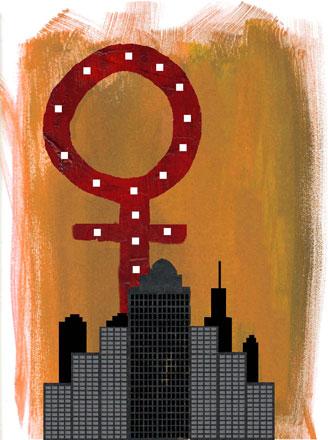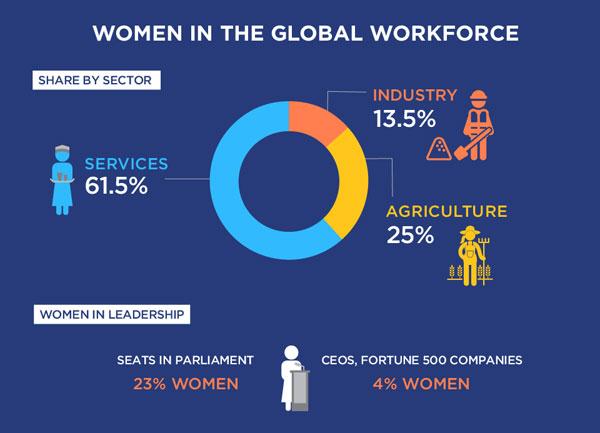You are here
‘Repeal of controversial Penal Code provision on rape continues to top demands of women’s groups’
By JT - Dec 29,2016 - Last updated at Dec 29,2016

MCT illustration
AMMAN — A year-end report published on Thursday by women’s rights advocacy organisation Sisterhood Is Global Institution (SIGI) has drawn attention to the challenges still faced by women in Jordan.
The institute’s report highlighted that a key demand of women’s’ organisations continues to be the complete repeal of Article 308 of the Penal Code, which allows rapists to avoid punishment if they marry their victims.
SIGI welcomed the Iftaa Department’s “Fatwa No. 3258”, issued on December 1, 2016, which prohibits honour killing and deems those who commit it as criminals who should be punished with no reduced sentence for any reason.
The SIGI report compiled facts and figures from various sources about the condition of women in recent years, with a particular focus on women’s representation, or lack of it, in key state and civil society positions.
Representation
The highest representation of women in government was during former prime minister Abdullah Ensour’s second government, between 2013 and 2016, when there were five female ministers, accounting for 17.8 per cent of the 28 ministers, SIGI said in the statement.
By comparison, Prime Minister Hani Mulki’s current government has only two women ministers out of 30,or only 6.6 per cent.
As for the judicial sector, SIGI cited 2015 Justice Ministry reports that the overall number of judges, men and women, increased to 966 in 2015, up from 754 in 2009.
Despite this 28.1 per cent increase, there were only 142 women judges out of a total of 908 in 2013.
Representation in professional associations and unions is no better, with the Jordan Teachers Association council having no female representation at all, with all its 14 seats taken by men, SIGI said.
Despite women comprising 67.2 per cent of all teachers, and 69.3 per cent of administration workers in education, the report states that women have been excluded from decision-making positions within the association.
In the medical profession, SIGI, citing the Department of Statistics’ 2015 reports, said there are 3,348 female doctors out of a total of 19,477 physicians, comprising 17.2 per cent, yet the Jordan Medical Association council’s 13 seats are all occupied by men.
The report used the 2015 population census’ results to show that women start leaving the job market at the age of 30, despite their high levels of education and skills, which in turn limits their ability to reach leadership positions.
Women’s lack of economic involvement has reflected negatively on their subscription to social security insurance, SIGI said, noting that until July 31, 2016, the number of women subscribers to the Social Security Corporation stood at 312,000 out of the total 1.183 million subscribers.
Within public universities, however, women make up over a quarter of all professors. Higher education statistics for the 2014/2015 academic year reveal that 26.5 per cent of professors are women, or 2,836 women out of a total of 10,675 professors, SIGI said.
The same report also revealed that 51.8 per cent of students at Jordanian universities are female, with112,058 female students at public universities and 26,562 at private ones.
Crimes against women
In 2016, 29 women were murdered, SIGI said. It also highlighted the increase in online gender-based crimes, and the difficulty of implementing strategies and policies to deal with them, or ensuring those guilty are punished and made to compensate victims.
Around 600 cyber crimes were committed in 2010, rising to 2,305 cyber crimes in 2015, SIGI said, noting that these cases are referred to the Public Security Department’s cyber crime combating unit.
SIGI’s report showed a decrease in reported rapes, from 174 in 2012, to 122 in 2015.
The report also discussed early marriage, the increase in the average marriage age for women, and the increase in cases of divorce. In addition, SIGI called for a minimum age to be set for men and women to be allowed to marry, in addition to raising issues around alimony and child labour.
Stock exchange
Jordanian women own 4.88 per cent of the stock exchange market’s value listed in the Amman Stock Exchange, the SIGI statement said, citing a report issued by the Jordan Securities Commission on April 19, 2016.
This 4.88 per cent stands at 445 million stocks with a total value of around JD831 million.
The Jordanian men’s share, however, stood at 17.3 per cent, with around 2.023 billion stocks valuing JD2.954 billion.
However, when it comes to health insurance, 64.8 per cent of women have insurance compared to 62.8 per cent of men, SIGI said.
The Vocational Training Corporation in 2014 received 5,795 women trainees out of a total 21,504 trainees, SIGI said, citing the corporation’s annual report for 2014.
Related Articles
AMMAN — Women’s rights activists in Jordan are marking International Women’s Day by renewing their calls to increase women’s political parti
AMMAN — The number of banks in Jordan has remained unchanged in the past three years, standing at 25, 16 of which are local banks and nine f
AMMAN — Juveniles in 2016 perpetrated a total of 2,444 crimes, including 1,017 felonies and 1,427 misdemeanours, the Sisterhood Is Global In
















